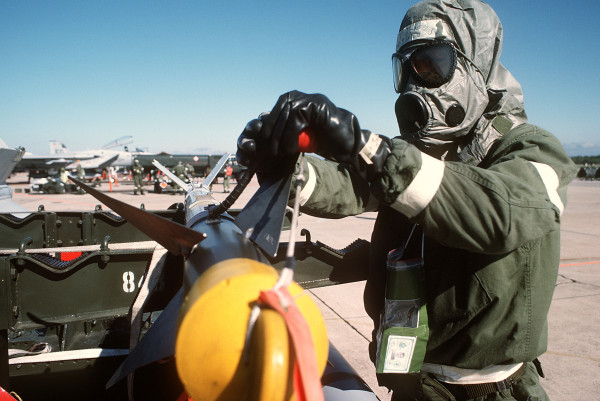Disarmament campaigners in Israel have launched a campaign to pressure Israeli Prime Minister, Benjamin Netanyahu, to ratify the Chemical Weapons Convention that they have already signed up to in the run up to the Nuclear Nonproliferation Treaty conference scheduled for April and May this year at the UN in New York.
Campaigners say that even though Israel isn’t a signatory to the NPT, they benefit from the security it supposedly provides and should create the conditions for the establishment of a zone free of weapons of mass destruction by ratifying it as soon as possible. Given that Syria has disarmed, there is no strategic reason not to ratify, the campaign claims.
Individuals and organisations around the world are being encouraged to go to the campaign website and sign the petition.
Open Letter to Israeli Prime Minister Benjamin Netanyahu
The United Nations General Assembly (UNGA) first endorsed calls for the establishment of a Nuclear Weapons Free Zone in the Middle East in a resolution approved in 1974. That resolution has been passed annually without a vote by the UNGA and has been incorporated in a number of UN Security Council Resolutions including Resolution 687, adopted in 1991, which ended the first Gulf War.
As part of a package of decisions that resulted in the indefinite extension of the Nuclear Nonproliferation Treaty (NPT), the 1995 NPT Review Conference called for “the establishment of an effectively verifiable Middle East zone free of weapons of mass destruction, nuclear, chemical and biological, and their delivery systems.” The 2010 NPT Review Conference in its final document unanimously called for implementation of the 1995 Resolution on the Middle East and agreed to hold a conference in 2012, to be attended by all states in the region, on a Middle East Zone Free of Nuclear and other Weapons of Mass Destruction. A date was set for December 2012 in Helsinki, but the conference was indefinitely postponed a month before it was to have been held.
With the 2015 NPT Review Conference coming up, States within and outside the region are growing increasingly frustrated by the lack of progress on establishment of a WMD Free Zone in the Middle East. United Nations Secretary-General Ban Ki-moon has also expressed concern for the integrity of the NPT regime if progress is not made. It is anybody’s guess what the effects will be by the time States meet in New York at the end of April. Although Israel is not a party to the NPT, it enjoys the security benefits the treaty provides.
In 2013 Syria ratified the Chemical Weapons Convention (CWC) and declared a 1,300-ton chemical weapon arsenal that has since been destroyed. Israel and Egypt are the only two remaining states in the region that have not ratified the CWC. Given Syrian ratification, there is no longer a strategic chemical weapons threat against Israel. Israel has already signed the CWC and could easily ratify it unilaterally, without further regional negotiations.
Israeli ratification of the CWC would be a concrete step toward the establishment of a Middle East WMD Free Zone and would serve as a regional confidence building measure. Such a confidence building measure might lessen the growing frustration that is felt by many States on the lack of implementation of the NPT 2010 decision, and thus increase prospects for a successful outcome to the 2015 NPT Review Conference.
We call on you, in the interest of Israeli, regional and international peace and security to ratify the Chemical Weapons Convention without conditions and without delay.










